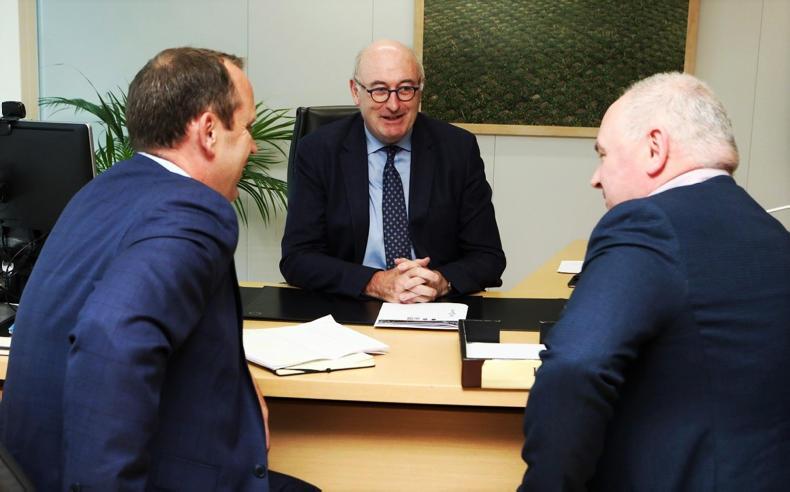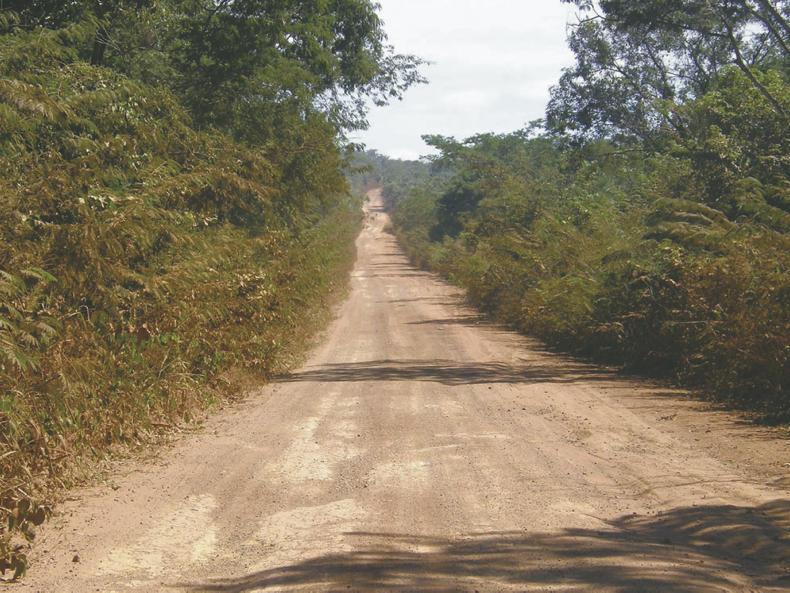The EU-Mercosur trade agreement allowing 99,000t of additional South American beef into Europe can only come into force if Brazil reverses the devastating deforestation trend observed in recent years, European Commissioner for Agriculture Phil Hogan said in an exclusive interview with the Irish Farmers Journal.
"The deal is dead" if Brazil does not respect its commitments under the Paris Climate Agreement, Commissioner Hogan said. These include ending illegal deforestation by 2030 and restoring 12m ha or 1m ha/year of forest over the same period, he added.
These are binding commitments in the agreement
"It’s all there, these are binding commitments in the agreement," Hogan said. It will take several years to finalise the broad trade deal reached by the European Commission and negotiators from Brazil, Argentina, Uruguay and Paraguay on Friday, and another six years to phase in additional South American agri-food imports after this.
Climate commitments "will be enforced" during that period, Commissioner Hogan said. "Otherwise there will have to be a review of this agreement in terms of whether we can continue or not," he added.

European Commissioner Phil Hogan (centre) with Irish Farmers Journal editor Justin McCarthy (left) and markets and EU specialist Phelim O'Neill (right) in Brussels.
This makes the trade deal conditional upon a full U-turn on the deforestation observed in recent years and condoned by new Brazilian president Jair Bolsonaro.
"It’s totally unacceptable, what has been going on in recent times," Hogan said. "We’ll get them to sign up to commitments that are being made." However, he stopped short of detailing how the EU would verify that Brazil meets these targets.
Vast areas cleared
In the early 20th century, Brazil was importing food to feed its people. However, in the 1960s, the government incentivised domestic food production to drive self-sufficiency.
As agriculture expanded, the northern states of Mato Grosso and Matopiba became the new farming frontier, where farmers began clearing forest to convert land into agricultural production.
By 1990, Brazil was self-sufficient but Brazilian farmers continued to expand and vast areas of the rainforest continued to be cleared in the name of agriculture.
Between 1990 and 2000, an average of 1.6m ha of forestry were cleared every year in Brazil, according to Mongabay, a non-profit environmental media agency in Brazil. In 2004, almost 2.8m ha of rainforest were cleared in Brazil.
Efforts
Since 2007, Brazil’s government has made efforts to curb deforestation, but even still 650,000ha of rainforest were cleared in the country last year.
Deforestation has been on the rise again. During May 2019 alone, some 74,000ha of Amazon rainforest in Brazil was deforested, in addition to 86,3000ha of Cerrado savanna. Combined, that’s more than the area of the entire county of Leitrim.
Farmers continue to make land grabs along Brazil’s agricultural frontier in Mato Grosso and Matopiba. Enforcement of the Brazilian forest code is almost non-existent, and strengthening its implementation is another climate commitment Commissioner Hogan mentioned among the conditions to the Mercosur trade deal.
Read more from our interview with Commissioner Hogan in this week's Irish Farmers Journal.
Additional reporting by Thomas Hubert and Lorcan Allen. Read more
EU's Brazilian imports destroying 300 football fields of forest per day
Brazilian ministers endorse illegal farm
Global focus: Brazilian agriculture in expansion mode
Brazilian agriculture in numbers
The EU-Mercosur trade agreement allowing 99,000t of additional South American beef into Europe can only come into force if Brazil reverses the devastating deforestation trend observed in recent years, European Commissioner for Agriculture Phil Hogan said in an exclusive interview with the Irish Farmers Journal.
"The deal is dead" if Brazil does not respect its commitments under the Paris Climate Agreement, Commissioner Hogan said. These include ending illegal deforestation by 2030 and restoring 12m ha or 1m ha/year of forest over the same period, he added.
These are binding commitments in the agreement
"It’s all there, these are binding commitments in the agreement," Hogan said. It will take several years to finalise the broad trade deal reached by the European Commission and negotiators from Brazil, Argentina, Uruguay and Paraguay on Friday, and another six years to phase in additional South American agri-food imports after this.
Climate commitments "will be enforced" during that period, Commissioner Hogan said. "Otherwise there will have to be a review of this agreement in terms of whether we can continue or not," he added.

European Commissioner Phil Hogan (centre) with Irish Farmers Journal editor Justin McCarthy (left) and markets and EU specialist Phelim O'Neill (right) in Brussels.
This makes the trade deal conditional upon a full U-turn on the deforestation observed in recent years and condoned by new Brazilian president Jair Bolsonaro.
"It’s totally unacceptable, what has been going on in recent times," Hogan said. "We’ll get them to sign up to commitments that are being made." However, he stopped short of detailing how the EU would verify that Brazil meets these targets.
Vast areas cleared
In the early 20th century, Brazil was importing food to feed its people. However, in the 1960s, the government incentivised domestic food production to drive self-sufficiency.
As agriculture expanded, the northern states of Mato Grosso and Matopiba became the new farming frontier, where farmers began clearing forest to convert land into agricultural production.
By 1990, Brazil was self-sufficient but Brazilian farmers continued to expand and vast areas of the rainforest continued to be cleared in the name of agriculture.
Between 1990 and 2000, an average of 1.6m ha of forestry were cleared every year in Brazil, according to Mongabay, a non-profit environmental media agency in Brazil. In 2004, almost 2.8m ha of rainforest were cleared in Brazil.
Efforts
Since 2007, Brazil’s government has made efforts to curb deforestation, but even still 650,000ha of rainforest were cleared in the country last year.
Deforestation has been on the rise again. During May 2019 alone, some 74,000ha of Amazon rainforest in Brazil was deforested, in addition to 86,3000ha of Cerrado savanna. Combined, that’s more than the area of the entire county of Leitrim.
Farmers continue to make land grabs along Brazil’s agricultural frontier in Mato Grosso and Matopiba. Enforcement of the Brazilian forest code is almost non-existent, and strengthening its implementation is another climate commitment Commissioner Hogan mentioned among the conditions to the Mercosur trade deal.
Read more from our interview with Commissioner Hogan in this week's Irish Farmers Journal.
Additional reporting by Thomas Hubert and Lorcan Allen. Read more
EU's Brazilian imports destroying 300 football fields of forest per day
Brazilian ministers endorse illegal farm
Global focus: Brazilian agriculture in expansion mode
Brazilian agriculture in numbers







 This is a subscriber-only article
This is a subscriber-only article










SHARING OPTIONS: